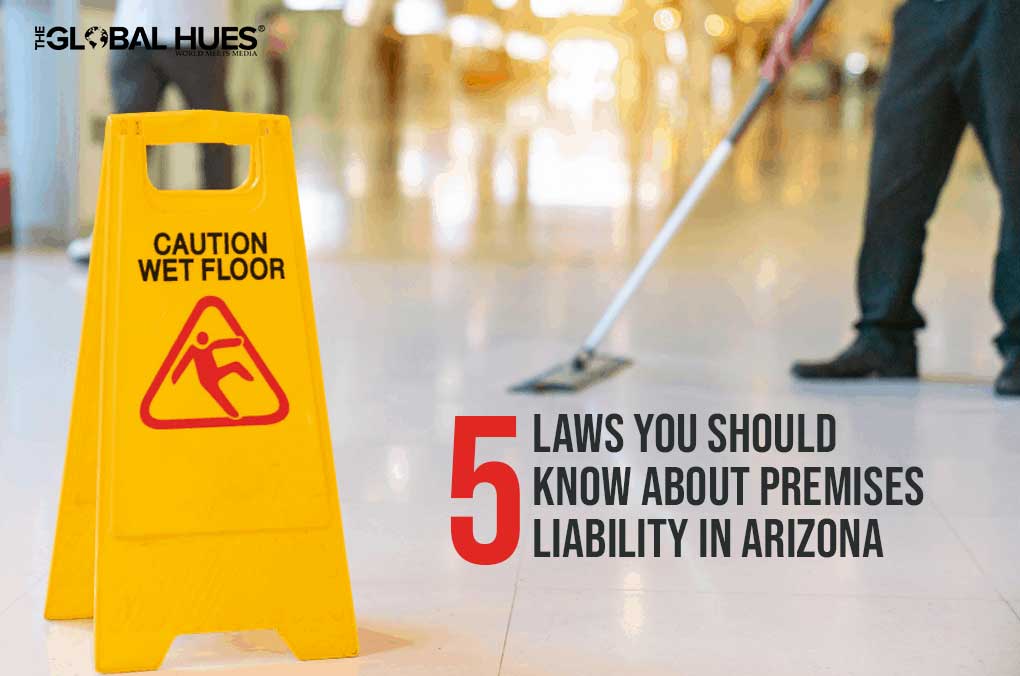Arizona’s premises liability law is unique compared to other states, and it can be difficult for those unfamiliar with the state’s premises liability laws to understand their rights when injured on someone else’s property. Fortunately, we’ve put together a short guide that will help clarify some of the most important aspects of this area of law. This can help you better protect yourself from injuries suffered on another person’s land or business.

1. The state uses a modified comparative negligence rule for premises liability cases
If you’re new to the legal system, you might not know how comparative negligence works. In Arizona, if any party is partially at fault for an accident, their damages are reduced by the percentage of their fault. If you’re awarded $25,000 in damages but found 20% responsible for your injuries, only 80% of your award will be paid out by the defendant. So, for example, if a jury awards $100 million in total damages and finds that both parties were 50% responsible for causing the incident, which would normally result in equal compensation, each party would receive $50 million from each other under this rule.
2. In Arizona, the statute of limitations for a personal injury case is two years from the date the injury occurred
The next time you hear someone say, “I have a personal injury case,” you might think about a lawsuit or two. But what if they’re talking about something else?
The statute of limitations is the time limit for bringing a lawsuit. Arizona’s period is two years from the date of injury or wrongful death. A person injured by another person’s negligence has only two years to file a claim with the court against that person. If they do not file within that time, their right to compensation may be lost forever.
3. Commercial property owners are responsible for maintaining safe surfaces that are free from hazards
Commercial property owners are responsible for maintaining safe surfaces free from hazards. If you own or manage a business and allow your customers to enter your premises, you should ensure that the flooring inside the building doesn’t create a dangerous situation. Accidents can happen when someone slips and falls on wet floors, especially if there is grease or other slippery substances on the floor. Commercial property owners must keep visitors safe while they visit your premises, so it’s important to have written policies in place that guide them on how they should handle these situations and report injuries.
4. Commercial property owners must provide security on their premises if they know about a history of violence in that area
If you are a commercial property owner and you know about a history of violence in an area, it’s your responsibility to provide security for guests. The most common type of security is simply having guards on the premises. Other forms of security include cameras, alarms, barricades, and other measures that can be taken to protect patrons from harm.
5. There is a duty of care owed to customers
A duty of care is the obligation to conform one’s conduct to a certain standard of conduct. The law imposes this duty based on the relationship between parties, their activities, and the circumstances surrounding their relationship. For example, in Arizona premises liability cases, there are different duties owed by landlords to tenants versus invitees versus mere visitors. Duty of care is a legal concept that helps us determine whether someone has been negligent in a particular circumstance and is thus liable for any damages caused by their actions or lack thereof.
Conclusion
If you or a loved one has been hurt in an accident on someone else’s property, it is important to know your legal rights. Search for a good premises liability lawyer near you to learn more about premises liability law in Arizona and how it can help you recover damages for injuries sustained due to unsafe conditions.
Must Read:
- Spain: Nation Of Cultural Fiesta
- Top 10 Indian Origin CEOs Leading International Companies
- HIGHEST-PAID CEOs IN THE WORLD
- Success Story Of Mukesh Ambani
- TOP 10 NEWSPAPERS IN THE WORLD 2022
- Top 10 Best Places To Visit In India
- 10 GADGETS TO KEEP YOU COOL THIS SUMMER
- 7 R’s Of Waste Management – Steps To Sustainability
- What Are The 5 Must Watch Netflix Thrillers
- Upcoming Shows And Films On Netflix In 2022




